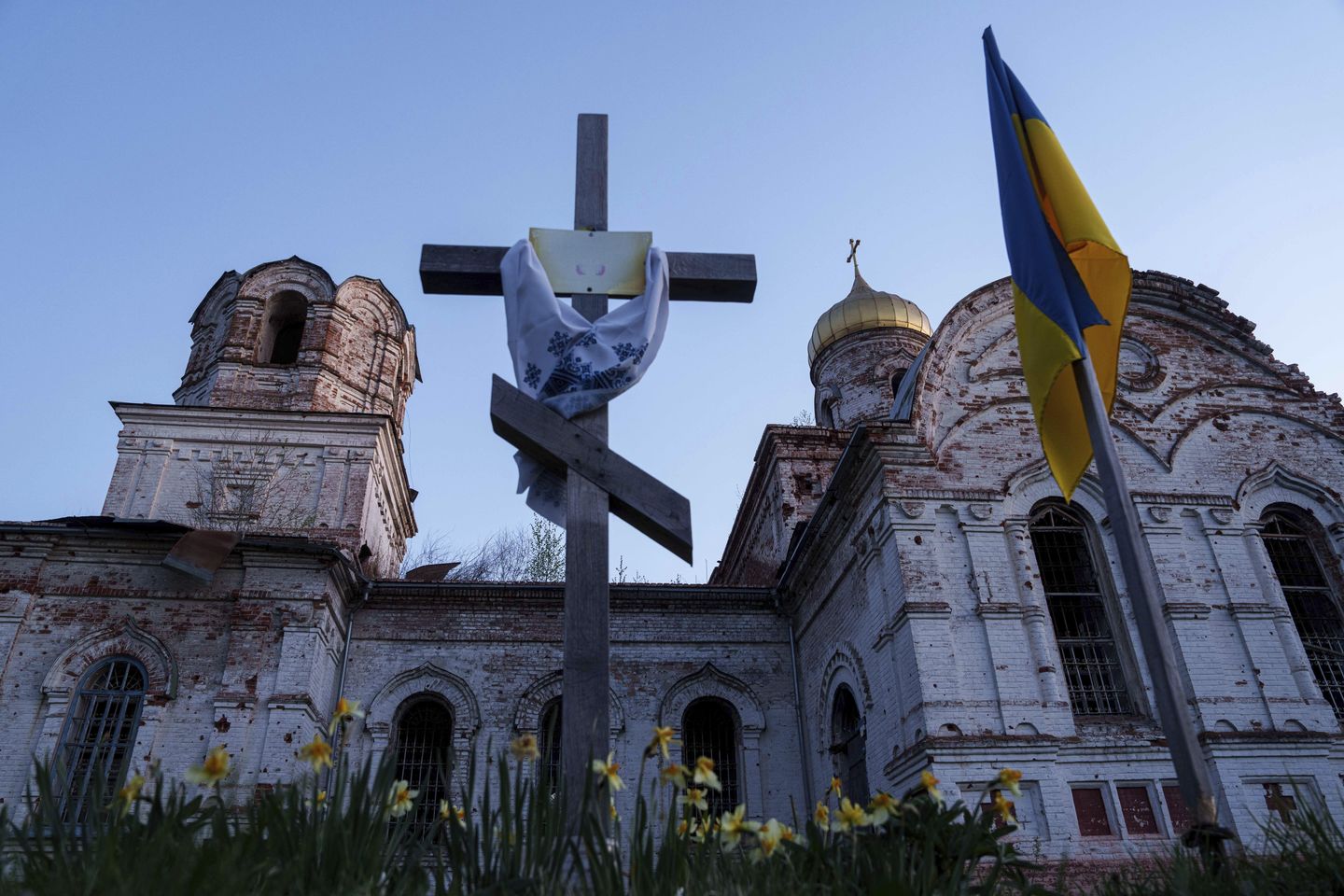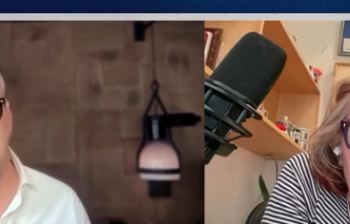
Ukraine and Russia each accused the other Sunday of breaking a truce, with dozens of reported attacks across Ukraine amid dwindling hopes that the nations can ever agree to a lasting ceasefire.
Reports from Ukrainian military commanders along the front lines, if true, cast doubt on whether Russian President Vladimir Putin was serious in his call for the ceasefire — though the Kremlin accused Ukraine of breaking the truce with a series of artillery attacks in the Donetsk province.
Either way, the apparent inability of the two sides to follow a brief Easter pause casts doubt on whether peace is achievable now. It comes against the backdrop of an increasingly frustrated Trump administration, which has made clear that it is prepared to walk away from its peace push despite President Trump’s vow to end the war quickly.
On Friday, Mr. Trump indicated the U.S. could “take a pass” on continuing negotiations if progress isn’t made soon.
“Now, if for some reason, one of the two parties makes it very difficult, we’re just going to say ‘you’re foolish,’” the president said. “You are fools, you horrible people. And we’re going to just take a pass. But hopefully, we won’t have to do that.”
Mr. Putin first called for the ceasefire, saying it should begin at 6 p.m. Saturday and last through Easter, ending on Monday morning. He said he ordered the Russian military “to stop all fighting.”
But Russian forces did exactly the opposite, Ukrainian President Volodymyr Zelenskyy said. Citing Ukrainian commanders on the front lines, Mr. Zelenskyy said Saturday evening alone “there were 387 instances of shelling and 19 assaults by Russian forces,” and that “drones were used by Russians 290 times.”
On Easter morning, Mr. Zelenskyy said the assaults continued.
“Between midnight and noon today, Russian forces have already carried out 26 assaults,” he wrote on X, accusing the Russians of using the purported ceasefire as a public-relations tool. “In practice, either Putin does not have full control over his army, or the situation proves that in Russia, they have no intention of making a genuine move toward ending the war, and are only interested in favorable PR coverage,” Mr. Zelenskyy said.
Moscow had a very different take. Russia’s state-run Tass News Agency said that Ukrainian forces had launched multiple artillery attacks in the Donetsk region, effectively breaking the truce.
The two sides did conduct a major prisoner exchange Saturday, with each returning 246 prisoners.
The apparent inability to observe a brief ceasefire will only fuel pessimism back in the U.S., where Mr. Trump, Secretary of State Marco Rubio and other top administration officials have expressed serious doubt about whether an end to the war is possible.
Mr. Rubio was exceptionally blunt in his assessment Friday.
“We are now reaching a point where we need to decide whether this is even possible or not,” Mr. Rubio told reporters upon departure. “Because if it’s not, then I think we’re just going to move on.”
Ukraine agreed to a U.S.-backed temporary ceasefire proposal earlier this year, but the Kremlin rejected it. Mr. Trump has expressed public frustration with Mr. Putin’s position, even saying recently he was “pissed off” with the Russian leader.
To put pressure on Moscow, the White House reportedly has been considering direct sanctions or secondary tariffs on Russia’s oil exports, which represent the lifeblood of its economy.
Some specialists argue that the U.S. should look for ways to put pressure on Russia without walking away from the peace process entirely, a step that would seemingly guarantee a continuation of the war.
“Although Trump has threatened Russia with economic punishment, he has yet to follow through. Ukraine has felt Trump’s wrath, whereas Moscow has been permitted to blow off Trump’s peace proposals with impunity,” wrote John Hardie, deputy director of the Russia Program at the Foundation for Defense of Democracies, in a recent piece for the New York Post.
“Putting the Russians on the clock makes sense. But by threatening to walk away, Washington tempts Moscow to wait out Trump’s patience,” Mr. Hardie wrote.


![NYC Tourist Helicopter Falls into Hudson River, Siemens Executive and Family Among Those Killed [WATCH]](https://www.right2024.com/wp-content/uploads/2025/04/NYC-Tourist-Helicopter-Falls-into-Hudson-River-Siemens-Executive-and-350x250.jpg)






![Red Sox Fan Makes the ‘Catch of the Day’ with Unconventional ‘Glove’ [WATCH]](https://www.right2024.com/wp-content/uploads/2025/04/Red-Sox-Fan-Makes-the-‘Catch-of-the-Day-with-350x250.jpg)
![Green Day’s Cringe Trump Diss Ends in Fire and Evacuation [WATCH]](https://www.right2024.com/wp-content/uploads/2025/04/Green-Days-Cringe-Trump-Diss-Ends-in-Fire-and-Evacuation-350x250.jpg)






